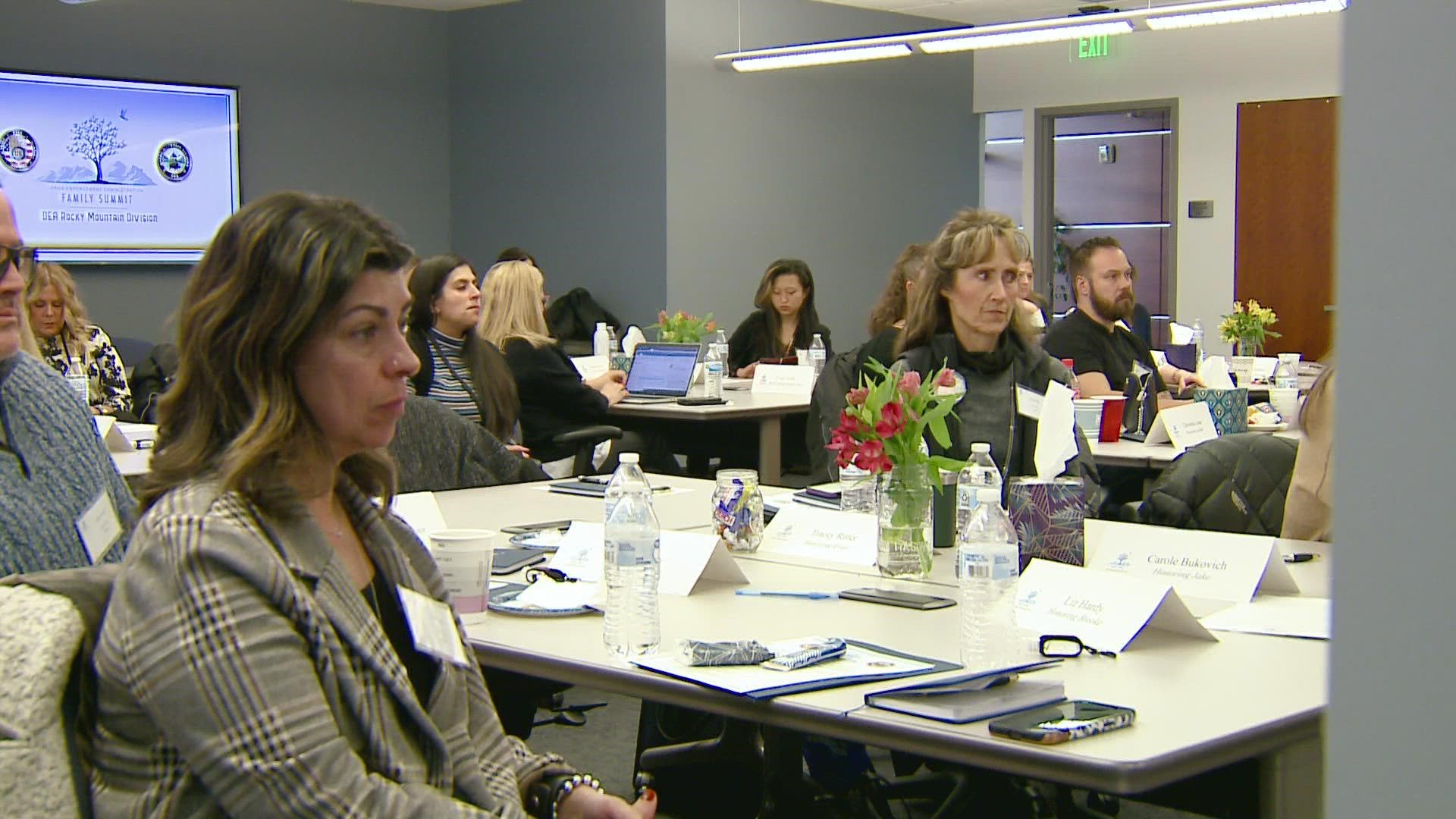DENVER — We hear about fentanyl overdoses every day. Now law enforcement officers working to prevent them from happening are trying to figure out what they need to do differently, and they're listening to families for advice.
On Thursday, that started with the Drug Enforcement Administration (DEA) hearing from the families of people who’ve died from fentanyl overdoses.
"I want people to know that this is a problem," said Samuel Kelley, whose nephew Josiah Velasquez, 15, died after taking a fentanyl-laced pill in May.
The DEA said more than 107,000 people died from drug overdoses last year around the country, and 66% of those were because of fentanyl. For the first time, events like the DEA's Family Summit put the families of the victims in the same room as the people fighting the problem.
"The more that we can speak and give voices to the people who no longer have those voices because it was taken from them through the actions that they did unknowingly, that’s where the change happens," Kelley said.
The DEA hosts summits across the country with the goal of hearing from people about what they need to be doing differently in the war against fentanyl. They cover things like what resources families need for someone struggling with addiction and what can they do to help after an overdose.
Cole Finegan is the U.S. Attorney for the District of Colorado. As Colorado makes state laws stricter in prosecuting drug dealers, Finegan said it’s a constant ongoing battle to take fentanyl off the street. Thursday, he told the families of those who have died that his focus is on the dealers.
"We’re focused on the people at the top of the chain," Finegan said. "We’re trying to find the people who are making it and the people who are distributing it. That is where we are focused in the United States Attorney’s Office."
One meeting won’t stop the overdoses. But inside this room, there’s hope that change will make fewer families go through the same pain of losing someone to an overdose.
"He no longer has that voice. He can’t speak up," Kelley said. "He can’t tell you that he just tried this one time. There isn’t a second time."
SUGGESTED VIDEOS: Latest from 9NEWS

